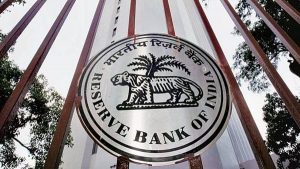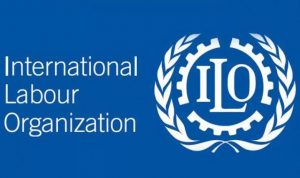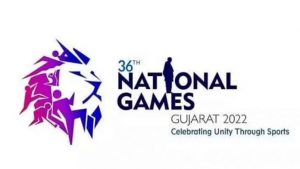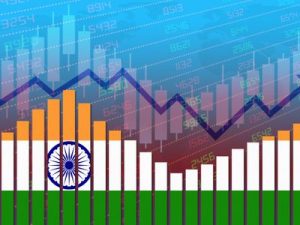Today Current Affairs: 6th September 2022 for UPSC IAS exams, State PSC exams, SSC CGL, State SSC, RRB, Railways, Banking Exam & IBPS, etc
Table of Contents
India’s 1st LNG Fuelled Green Truck:

A start-up backed by Blue Energy Motors, has made India’s 1st LNG–fuelled green truck at Chakan in Pune.
- Heavy-duty liquefied natural gas (LNG) vehicles work much like gasoline-powered vehicles with a spark-ignited internal combustion engine.
- The natural gas is super-cooled and cryogenically (at – 260 degrees F) stored in liquid form, usually in a tank on the side of the truck.
- In the liquid state, the volume of natural gas is 600 times smaller than its gaseous state.
RBI Guidelines For Digital Lending:

RBI has tightened the norms for digital lending seeing a number of cases of fraud. Digital lending involves giving and recovering loans through web platforms or mobile apps. It facilitates speedy disbursal and helps lower the costs of lending.
Guidelines:
- No middlemen: All loans disbursals/repayment between the holder of the bank account and the Regulated entities ( e.g. Commercial banks, cooperatives, NBFC etc.)
- Limited information can be stored: Name, address etc. are allowed but no biometric information of borrower can be stored by Digital lending apps (DLAs)
- Reporting of all lending activities to be done to Credit Information companies (CICs).
- A borrower can exit the digital loan by paying principal and interest after the cooling-off period/ look-up period.
- Guidelines will help in protecting consumers from harassment, breach of data, etc.
India’s First Dark Sky Reserve In Hanle, Ladakh:

In a first-of-its-kind initiative, the Department of Science & Technology (DST) has announced the setting up of India’s first Dark Sky Reserve in Hanle, Ladakh.
- A Dark Sky Reserve is a designation given to a place that has policies in place to ensure that a tract of land or region has minimal artificial light interference.
- The International Dark Sky Association is a U.S.-based non-profit that designates places as International Dark Sky Places, Parks, Sanctuaries and Reserves, depending on the criteria they meet.
- MoU for Setting up Dark Reserve: There was a three-way Memorandum of Understanding was signed among the Union Territory administration, Ladakh Autonomous Hill Development Council (LAHDC), Leh, and the Indian Institute of Astrophysics (IIA), Bengaluru, which uses and maintains the telescopes, for launching the Dark Space Reserve.
- It will have activities to help in boosting local tourism and the economy through interventions of science and technology.
- To promote Astro-tourism, villages around Hanle will be encouraged to promote homestays equipped with telescopes that visitors can use to view the night sky.
- Villagers and residents will also be trained to help visitors with astronomical observations.
- There will be delineators on roads like you do outside observatories. People can come, park, observe the sky and stay in homestays.
- A visitor centre would also be set up to inform people not only about astronomy but also about the wildlife and plant life in the adjoining Changthang Wildlife Sanctuary.
ILO: World Social Protection Report 2020-22

ILO recently released a report specific to Asia and the Pacific
Key findings:
- No access to social protection: Almost 53% of the population in the world has no social protection (56% in the Asia-Pacific and in India over 76% (Bangladesh has a higher % of people under social protection) have no social protection)
- Spending on social protection: World average is 12.9% (twelve points nine), while that in India is just 8.6% (eight points six) (Economic Survey 2021-22)
- India’s social security spending: Lower than 5% of GDP per capita.
INS Satpura:

INS Satpura visited Suva, Fiji from 01 – 03 September 2022 as part of its Operational Deployment in the Pacific Ocean.
- The ship’s visit is aimed at further strengthening the friendship and cooperation between the two nations.
- Built at Mazagaon Docks Ltd, Mumbai, and commissioned on 20 August 2011, INS Satpura derives her name from the majestic Satpura mountain range in central India.
- A frontline warship of the Eastern Fleet based at Visakhapatnam, INS Satpura is currently on one of the longest deployments by the Indian Navy in the 75th year of India’s Independence.
- Fiji is an island country in Melanesia, part of Oceania in the South Pacific Ocean.
Sedition Laws:

As per National Crime Records Bureau (NCRB) reports, Assam recorded the most number of Sedition cases in the country in the last eight years.
Findings of the NCRB:
- Out of 475 sedition cases registered in the country between 2014 and 2021, Assam accounted for 69 cases (14.52%).
- After Assam, the most number of such cases were reported from Haryana (42 cases), followed by Jharkhand (40), Karnataka (38), Andhra Pradesh (32) and Jammu and Kashmir (29).
- These six states accounted for 250 cases — more than half the number of total sedition cases recorded in the country — in the eight-year period.
- 76 sedition cases were registered across the country in 2021, a marginal increase from the 73 registered in 2020.
- States and UTs that did not register even one sedition case in that period were Meghalaya, Mizoram, Andaman and Nicobar Islands, Chandigarh, Dadra and Nagar Haveli and Daman and Diu, and Puducherry.
Sedition laws:
- Enacted in 17th century England when lawmakers believed that only good opinions of the government should survive, as bad opinions were detrimental to the government and monarchy.
- The law was originally drafted in 1837 by Thomas Macaulay, the British historian-politician, but was inexplicably omitted when the Indian Penal Code (IPC) was enacted in 1860.
- Section 124A was inserted in 1870 by an amendment introduced by James Stephen when it felt the need for a specific section to deal with the offence.
- Today the Sedition is a crime under Section 124A of the Indian Penal Code (IPC).
36th National Games:

Union Home Minister Amit Shah launched the mascot and the anthem for the 36th National Games at Trans Stadia in Ahmedabad.
- The mascot is named as Savaj which means cub in Gujarati. T
- he anthem is based on the theme of Ek Bharat Shreshtha Bharat.
- The National Games will be organised between 29th of this month to 12th of next month at six cities in the state namely Ahmedabad, Gandhinagar, Surat, Vadodara, Rajkot and Bhavnagar.
- The event also witnessed the closing of 11th Khel Mahakumbh. Winners of Khel Mahakumbh were given away prizes at the hands of Mr. Shah.
India Became The World’s Fifth-Largest Economy:

India became the world’s fifth largest economy by overtaking the United Kingdom. Now, the United States, China, Japan, and Germany are the only nations with economies larger than India’s.
- The real Gross Domestic product (GDP) growth of 6-6.5% in a world full of uncertainties is the new normal and India is set to be the third largest economy by 2029.
Key Highlights :
- Moving past one of the biggest economies in the world, especially one that ruled over the Indian sub-continent for two centuries, is a major milestone.
- The size of the Indian economy in ‘nominal’ cash terms in the quarter through March, 2022 was USD 854.7 billion while for UK was USD 816 billion.
- As of 2022, India has a population of 1.41 billion while the UK’s population is 68.5 million.
- GDP per capita provides a more realistic comparison of income levels because it divides a country’s GDP by the population of that country.
- The per capita income in India remains very low, India is ranked 122 out of 190 countries in terms of per capita income in 2021.
- The low per capita incomes often point to high levels of poverty.
- At the start of the 19th century, the UK’s share in extreme poverty was considerably higher than India
- The Universal Health Coverage (UHC) Index is measured on a scale from 0 (worst) to 100 (best) based on the average coverage of essential services including reproductive, maternal, newborn and child health, infectious diseases, non-communicable diseases and service capacity and access.
- While faster economic growth and the government’s policy focus on healthcare schemes since 2005 have made a distinct improvement for India, there is still a long way to go.
- The end goal of higher GDP and faster economic growth is to have better human development parameters.
- According to HDI (2019), the UK score is 0.932 and India’s score is 0.645 which is comparatively far behind the UK.
- Despite its secular improvement, India might still take a decade to be where the UK was in 1980.
- The dramatic shift has been driven by India’s rapid economic growth over the past 25 years as well as downslides in the value of the pound over the last 12 months.
- The right policy perspective and realignment in global geopolitics could further, also lead to an upward revision in its estimates for India.
Ramon Magsaysay Award:

Former Kerala Health Minister and Communist Party of India (Marxist) [CPI(M)] central committee member K.K. Shailaja, MLA, has declined the Ramon Magsaysay Award Foundation’s offer to consider her for the international honour in 2022.
- The foundation wanted to honour her for the public service and community leadership during the Nipah outbreak and COVID-19 pandemic in Kerala.
- However, Ms. Shailaja felt she could not accept the offer extended to her as an individual since the effort was collective.
- The Ramon Magsaysay Award, widely considered to be Asia’s equivalent to the Nobel Prize, recognises outstanding leadership and communitarian contributions in Asia.
- The prize was established in April 1957 by the trustees of the Rockefeller Brothers Fund based in New York City with the concurrence of the Philippine government.
- The Ramon Magsaysay Award is presented in formal ceremonies in Manila, Philippines on August 31st, the birth anniversary of the much-esteemed Philippine President whose ideals inspired the Award’s creation in 1957.
- From 1958 to 2008, the Award was given in six categories annually: (1) Government Service, (2) Public Service, (3) Community Leadership, (4) Journalism, Literature, and Creative Communication Arts, (5) Peace and International Understanding and (6)
- Starting in 2009, the Ramon Magsaysay Award is no longer being given in fixed Award categories, except for Emergent Leadership.
- Prominent Indians who have won the award include Vinoba Bhave in 1958, Mother Teresa in 1962, Kamaladevi Chattopadhyay in 1966, Satyajit Ray in 1967, Mahasweta Devi in 1997.
- In recent years, Arvind Kejriwal (2006), Anshu Gupta of Goonj (2015), human rights activist Bezwada Wilson (2016), and journalist Ravish Kumar (2019) have won the award.




